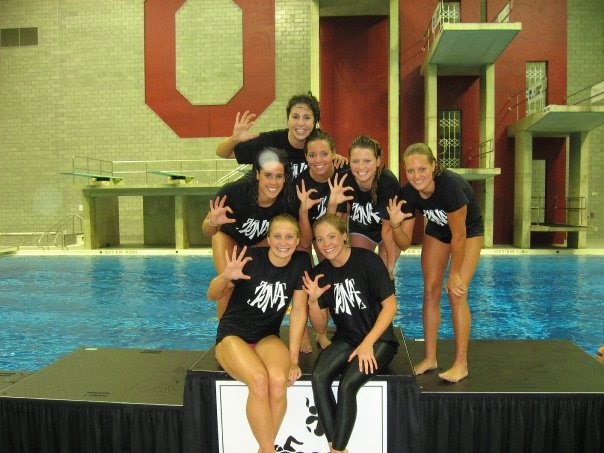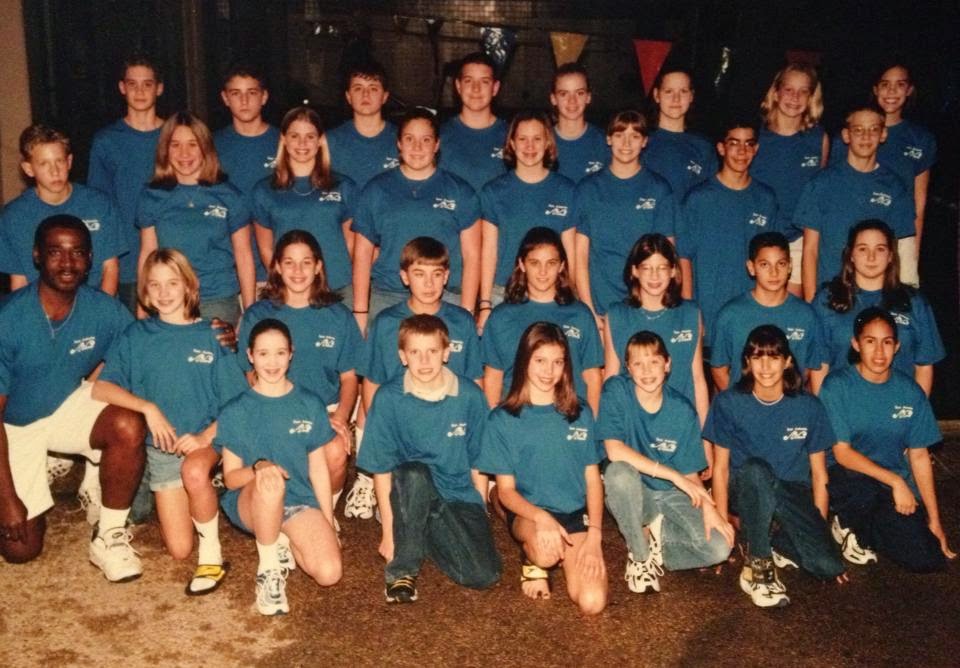When swimmers get serious, the word “quit” is thrown out of their lexicon. So when swimmers finish out their collegiate or professional careers they obviously do not “quit.” They retire.
After learning my husband Matt swims, folks outside of the swimming world ask if I also swim…then they laugh at my response.
“Yes, I did. But I’m retired.”
Growing up in the sport, that was not a word I imagined myself saying before turning 65. In my two years swimming post-graduately I had a few breakdowns on the phone with my mom.
What am I doing? I love swimming, but I’m not making much money. I felt guilty. I wanted a real job, but I also felt an inextinguishable need to train for Olympic Trials. Otherwise I would forever wonder and deal with more guilt (yes, you should know upfront if there’s guilt to feel, I’ll find it) about not fully developing my gift in the pool. It’s really tough/impossible to find a job which allows one to work from, let’s say 9 a.m. until 1 p.m. And when you’re swimming at a high level, that recovery period is integral. Getting a job would be detrimental to performance. I was torn.
Mom always reminded me: Oh, honey. Swimming is your job.
No, mom. No one looks at this as a job. I never did when I was in the sport. I liked it too much. And I got endorphin rushes from this “job.” I was in terrific shape from this “job.” I could eat the world with this “job.” People don’t love jobs this much, do they? Even if they do, a massive caloric intake isn’t usually encouraged in other work places.
Nope. Most people do not ever have the opportunity to work out and race for a living. But that was what I did, and what Matt still has the privilege of doing. That’s how a lot of people get through college. Yes, college swimming is also a job! Although I’m grateful no one on my college team ever treated it as such. It was always an honor.
So when we’re finished with the chlorinated life, we cannot quit something we love so much. You quit things you hate. You retire when you feel it’s time to move on.
When you’ve unwittingly been swimming as a job for many years, what can you move onto which will be comparable to that serene, antigravity sanctuary of a work place? And where do you go to find colleagues who want you to excel as badly as they want to excel? Colleagues you spend the days and nights with. Business partners you feel you know better than your family at times.
You don’t.
That sounds really devastating, but it’s not. It’s normal. What’s incredibly cool is that we were ever a part of a culture like that. A group that would sacrifice and work harder because of the people beside them. People who would be honored to almost throw up from exertion to get their hand on the wall and win a relay for the team. What an extraordinarily cool thing swimming can be.
Some people love the freedom they gain after retiring from sport. Some search immediately for a new structure, a daily design that will pack your schedule as tightly as swimming once did. I thought that was the only way I could operate. And when you have every 10-minute block of time scheduled, you sure do get a lot done. But the world does not move on a meet-to-meet schedule.
“Adjusting to the lack of structure and schedule is one of the biggest challenges of retirement because the real world moves much slower than the football world. Football is week-to-week, and everyone in the real world is working on the fiscal year. You have to slow yourself down because it’s not a sprint. You can’t attack every day like you do in football. You have to pace yourself and find balance. That’s a new concept for me.”
Nick Hardwick, former San Diego Charger
Lacey Nymeyer (now John) was a national champion, Olympian, NCAA Woman of the Year, and an Arizona Wildcat teammate of mine. She sent me this article written by Nick Hardwick, a former San Diego Chargers player, who retired and was shocked by the hole left in his identity after stepping off the field.
This former captain of mine and I have often talked about the athlete’s not-so-graceful transition into the real world and we’ve tried to diagnose the problem. There are definitely those who find a career path instantly and are exempt from the clump of people we’re talking about. I am not exempt. I bumbled around looking for something which would be as satisfying as swimming…for three years.
Lacey asked me to be part of a panel last year on athlete transition into the work force. I started laughing when she invited me.
Are you sure I am the right person to help here? At the time I was working as a swim school instructor and an apparel sales associate. I did not think I was a transitional success story.
I’m not sure the transition is something you can prepare for. Sure, you can beef up your resume with internships and community service, but not many athletes have job experience. Sorry, lifeguarding does not count.
In retrospect, I was probably a perfect person to fire questions at. Someone who nailed their first interview and got their dream job off the bat is the minority. Chatting with someone who has floundered around so you can perhaps avoid that same floundering, that could be productive. My journey on dry land was and is important in learning what I absolutely do not want to do.
In childhood, there were sports that looked cool, but were not what they appeared to be. I remember my cousin getting all of her gear for soccer and thinking, “Geez, I want cleats and shin guards and a vibrant jersey. I should play soccer.” Then I played in gym class one time. Not only did I have terrible foot-eye coordination, but I hated running. But I had to play it to realize how much, in my opinion, it sucked and I sucked at it.
I had the same experience with jobs. Oooo that sounds like a job I would be proud to tell my friends and family I have! I’ll take it. Three months later…there is no part of this I enjoy.
I look back on my swimming career, and as we established earlier, it really was a career. It was an internship I started without realizing I was building my resume. That’s the best, right? When you discover you’re good at something, obsess over getting better, and before you know it, you’re in the heart of a successful career.
That is what you search for in a new career. Those areas of untapped potential you fall across, which spur some wild dreams. When you wake up, pleasantly surprised by where you are. because you’ve been so focused on getting your foot on the next wrung of the ladder, you’ve not had time to see what great heights you’ve reached.





